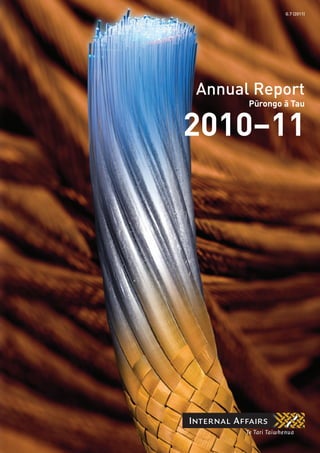The document is the 2010-11 annual report of the Department of Internal Affairs in New Zealand. It summarizes the department's activities over the past year, which included responding to major earthquakes in Canterbury, integrating several government agencies, and preparing for events like the Rugby World Cup. The department aims to serve and connect people, communities, and government to build a safe, prosperous, and respected nation.



















































































































































